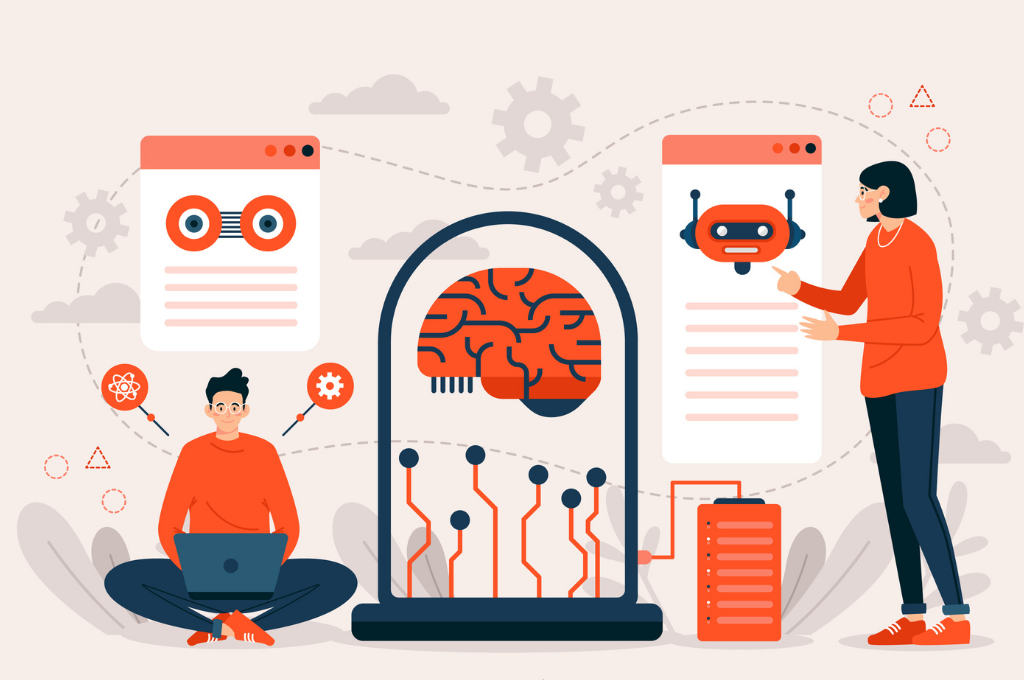Tailoring at Scale Levels: Artificial Intelligence's Effect on Customer Engagement

companies are coming to understand the importance of customized customer engagement. The standard one-size-fits-all approach is giving way to tailored experiences that resonate with individual preferences and behaviors. This transition is largely driven by advancements in artificial intelligence, which enables companies to analyze large volumes of data and gain insights into customer needs like never seen.
As businesses strive to connect with their audiences on a more intimate level, AI emerges as a formidable ally. By leveraging machine learning algorithms and predictive analytics, businesses can create flexible, personalized interactions that enhance customer satisfaction and loyalty. From targeted marketing campaigns to customized product recommendations, the ability to deliver the appropriate message at the perfect time is transforming the way consumers engage with brands, ultimately leading to improved outcomes for everyone.
Understanding AI in Customer Engagement
Artificial Intelligence has revolutionized customer engagement by allowing businesses to handle extensive amounts of information efficiently and accurately. This capability enables companies to gain understanding into customer behavior, preferences, and patterns that were earlier difficult to detect. With AI, organizations can scrutinize interactions across various channels, such as social platforms, electronic mail, and web pages, forming a complete view of the customer's path. This understanding is essential for tailoring experiences that resonate with individual consumers.
The customization offered by AI enhances customer satisfaction and fidelity. By employing AI algorithms algorithms, businesses can offer focused content and recommendations based on historical purchases and browsing records. This level of personalization makes customers feel recognized and valued, leading to increased engagement rates. When customers receive appropriate information and offers, they are more likely to convert and continue supporting a brand, ultimately driving sales and income.
Additionally, AI supports instant interactions that can substantially improve customer service. Through automated assistants and virtual assistants, businesses can provide instant support, respond to queries, and make recommendations at any time. This rapid response ability not only satisfies customer needs swiftly but also frees up human agents to handle more challenging issues. The fusion of efficiency and personalization helps create a seamless customer journey that can significantly enhance brand reputation and interaction.
Advantages of Personalization at Scale
Tailoring at scale transforms customer engagement by creating customized interactions that enhance contentment and loyalty. With AI, companies can examine vast amounts of information to grasp individual likes and actions. This capability enables organizations to deliver relevant content, product recommendations, and personalized messages to customers, making them feel valued and recognized.
Moreover, artificial intelligence-based personalization leads to increased conversion rates. When customers receive personalized offers and communications that align with their preferences, they are more likely to engage with the brand. This targeted approach minimizes the clutter of irrelevant marketing, allowing companies to capture attention effectively, leading to higher sales and fostering long-term customer relationships.
In addition, scalability is a significant benefit of using artificial intelligence for personalization. Traditional methods of customization often demand substantial effort and effort, restricting their effectiveness. Artificial intelligence automates and streamlines the tailoring process, enabling companies to serve to varied client segments at the same time. This effectiveness not only reduces time and costs but also guarantees that personalized interactions can be consistently delivered across multiple platforms and interaction points.
Obstacles and Resolutions in Execution
Implementing AI in the workplace brings its own challenges, mostly related to data quality and integration. Many companies struggle with obsolete or insufficient data, which can diminish the efficacy of AI solutions. Ensuring that data is accurate, organized, and readily available is important for effective AI deployment. This can necessitate significant investment in data management systems and procedures to ensure seamless integration across various platforms.
Another significant challenge is the skill gap within companies. Many businesses do not have enough in-house know-how to build and sustain AI systems. The quick pace of AI technology progress can further widen this gap, putting companies at a disadvantage. To address this, organizations can provide training programs for existing staff or partner with AI firms to access the needed skills. Additionally, encouraging a culture of continuous learning can help bridge the skills gap over time.
Ultimately, there can be opposition to change among employees who may fear that AI will replace their jobs or alter their roles substantially. Clear communication about the benefits of AI, alongside strategies for reskilling and redeployment, can alleviate these fears. Involving employees in the execution process and highlighting AI as a tool to improve their work rather than take over it can promote a smoother transition and boost overall acceptance.

